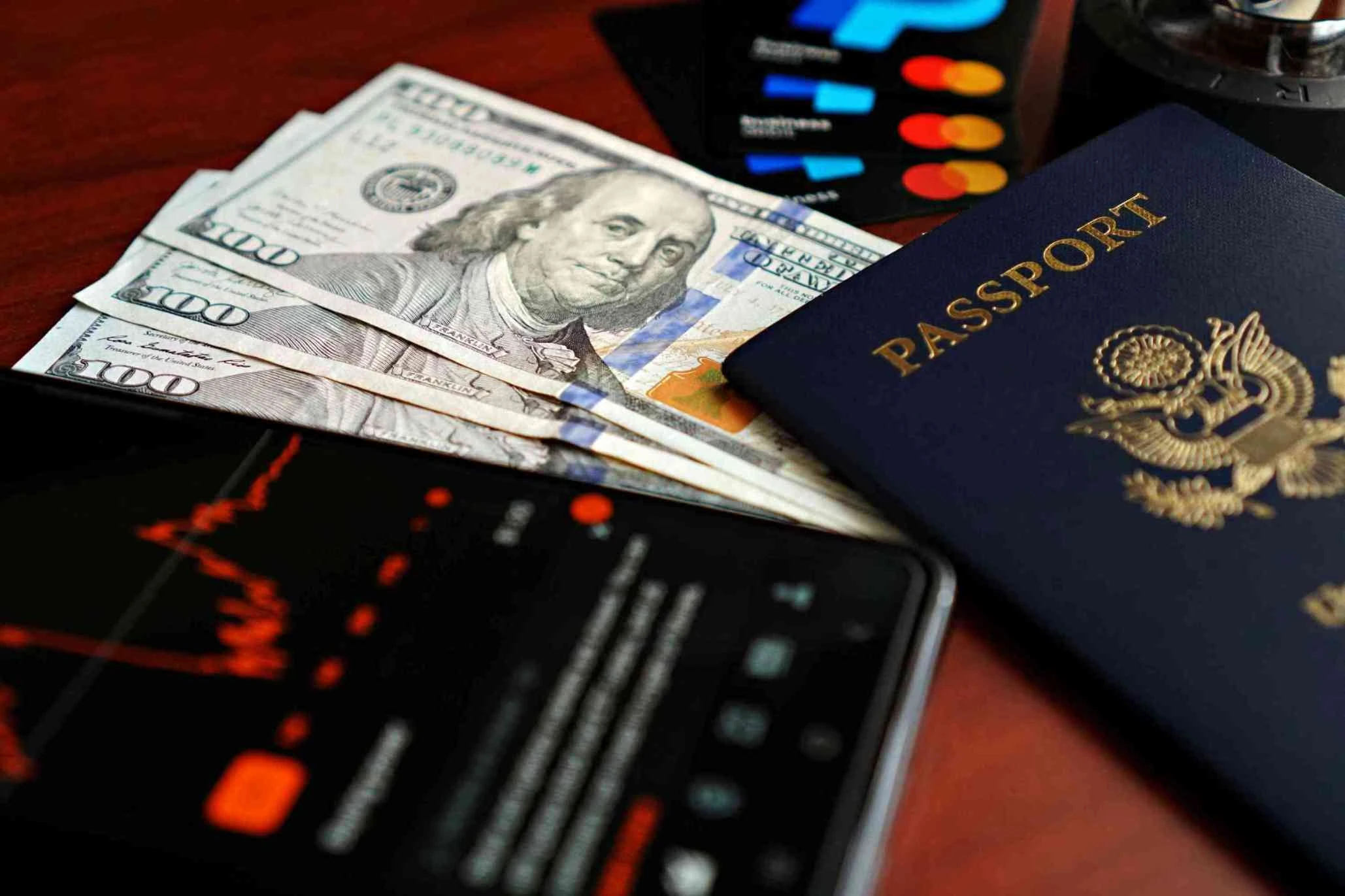List of Countries That Do Not Allow Dual Citizenship (Full List + Legal Guide)
- Ahmed hamdy Ahmed hamdy
- 0 Comments
Are you thinking of applying for a second passport in 2025? Before making the leap, it’s critical to understand that some countries allow dual citizenship and other dont allow dual citizenship— and choosing the wrong path could mean automatic loss of your original citizenship, legal penalties, or long-term complications.
While more than 130 countries permit some form of dual or multiple citizenship, several still enforce strict bans. If you’re asking:
-
Which countries prohibit dual citizenship completely?
-
Will I lose my U.S. citizenship if I become a citizen elsewhere?
-
Can I be a citizen of two or more countries legally?
This expert guide gives you everything you need to know. We’ll break down:
-
A full list of countries that do not allow dual citizenship in 2025
-
The legal risks and penalties of violating nationality laws
-
Step-by-step advice for U.S. citizens and expats
-
Key exceptions, alternatives, and workarounds like OCI or Yellow Card programs
Whether you’re applying by descent, citizenship by investment, or naturalization — this guide helps you avoid citizenship pitfalls and stay legally compliant.

What Is Dual Citizenship and Why Does It Matter in 2025
Dual citizenship, also known as dual nationality, is a legal status of having citizenship of another country and individual is recognized as a citizen of two or more countries simultaneously. This means you can hold multiple passports and enjoy the legal rights of each nation — such as residency, voting, property ownership, and access to public services.
-
You can acquire dual citizenship by birth, marriage, naturalization, investment, or descent.
-
Each country has its own rules on whether it allows dual nationality and under what conditions.
-
Some countries don’t recognize foreign citizenship at all and will revoke your original nationality if you apply for another.
If you’re a U.S. citizen planning to apply for Saudi, Indian, or Singaporean citizenship, you may be legally required to renounce your U.S. citizenship — or risk automatic cancellation of your new status.

Does the United States Allow Dual Citizenship?
Yes, the United States allows dual citizenship. U.S. citizens can hold another nationality without automatically losing their American status — unless they formally renounce it.
Important Points:
-
U.S. law doesn’t explicitly encourage dual nationality, but it allows it.
-
Dual citizens must use their U.S. passport to enter and exit the U.S.
-
Tax obligations apply worldwide, including FATCA and FBAR reporting.
-
Holding another nationality may affect security clearance, government jobs, or military eligibility.

Why It Matters Most to U.S. Citizens
Holding dual citizenship has serious implications:
- You could lose your original citizenship if the second country doesn’t allow dual nationality.
- Failure to renounce a nationality might lead to your application being denied—or worse, result in legal penalties.
- In many countries, dual citizens are banned from voting, military service, or public office.
- Even if you lose foreign citizenship, U.S. tax obligations remain, including foreign income reporting (FATCA, FBAR).
Full List of Countries That Do Not Allow Dual Citizenship (2025)
What Does It Mean When a Country “Does Not Allow” Dual Citizenship?
When a country automatically revocation of citizenship of another country, it may enforce one or more of the following legal policies:
- Mandatory Renunciation: You must give up your existing citizenship (e.g., U.S. citizenship) to acquire citizenship in another country.
- Automatic Loss: Acquiring a foreign nationality results in the immediate cancellation of your original citizenship.
- Legal Penalties: Some countries enforce dual citizenship bans through criminal penalties, loss of public office, or restricted civil rights.
- Non-Recognition: Some states do not explicitly ban dual citizenship, but treat you only as their own citizen while inside the country, disregarding any second nationality.
Understanding these variations is critical to avoid unintended consequences when applying for second citizenship.
Full List of Countries That Do Not Allow Dual Citizenship (2025)
| Country | Dual Citizenship Policy | Impact on U.S. Citizens |
|---|---|---|
| China | No recognition of dual nationality; automatic revocation of US citizenship may occur | Must renounce U.S. citizenship; no consular support |
| India | Prohibits dual citizenship; OCI status is not full citizenship | Must renounce Indian passport to naturalize as a U.S. citizen |
| Singapore | Only children are allowed until age 21 | Adults must choose one citizenship before 21 |
| Saudi Arabia | Allowed only by royal decree | Most must renounce U.S. citizenship |
| Japan | Must choose one nationality by age 22 | Risk of losing Japanese citizenship if undeclared |
| Ethiopia | No dual citizenship allowed | Must renounce to naturalize elsewhere; Yellow Card available |
| Indonesia | Allowed only until age 18 | Must choose one nationality by adulthood |
| Ukraine | Second citizenship is not recognized | Risk of revocation if U.S. citizenship is acquired |
| Austria | Automatically loses citizenship when acquiring another (unless exempt) | U.S. citizens must apply for a BBG exemption |
| Germany | Restricts dual citizenship but permits with pre-approval (BBG) | Must apply in advance to retain U.S. citizenship |
| Malaysia | No dual citizenship allowed | Loss of Malaysian nationality upon U.S. naturalization |
| South Korea | Allowed under certain cases; otherwise not permitted | Must declare intention to retain Korean nationality |
| Kuwait | Dual citizenship is not allowed | Kuwaiti-Americans must renounce one nationality |
| Nepal | No exceptions; automatic loss upon acquiring second citizenship | Nepali-Americans lose their citizenship when naturalizing in the U.S. |
| United Arab Emirates | Only select individuals are allowed dual nationality | Most applicants must renounce foreign citizenship |
| Slovakia | Loses Slovak citizenship upon acquiring another, unless by descent/marriage | U.S. citizens must check eligibility |
Are There Exceptions?
Some countries on this list allow dual citizenship in very limited scenarios, such as:
- Children with mixed-nationality parents
- Investors or foreign experts granted special exemptions
- Citizens who acquire a second nationality automatically by birth
However, these are not the norm and often require legal petitions, ministerial approval, or embassy intervention.
Why Some Countries Prohibit Dual Citizenship
While many countries accept dual citizenship, others strictly prohibit it. These restrictions are not random — they are based on legal, political, cultural, and security concerns.
If you’re planning to apply for a second nationality, it’s important to understand why some countries do not allow it. Below are the most common reasons.
National Loyalty and Allegiance
Some governments see dual citizenship as a conflict of loyalty. They expect citizens to give full allegiance to one country, especially when it comes to military service, voting, and public office. Countries like Japan, South Korea, and Singapore often view dual nationals as having divided obligations.
Political and Security Risks
Dual citizenship may be seen as a security threat, especially in countries with tense relations with other governments. In China, Iran, and Saudi Arabia, second passports — especially from countries like the U.S. — can raise concerns about foreign influence or interference in national matters.
Tax and Financial Enforcement
Dual citizens may move money or income across borders, making it harder for governments to enforce tax laws. Countries like Germany and Austria often require tax residency proof or financial disclosure before allowing dual citizenship.
Cultural Identity and Integration
Some countries believe that national identity should be exclusive. They want immigrants to fully adopt the culture, language, and values. India and Indonesia, for example, ban dual citizenship to preserve unity and discourage divided loyalties.
Legal and Administrative Simplicity
Handling citizens with multiple nationalities can be legally complicated. Issues like military exemptions, criminal prosecution, and diplomatic protection become harder to manage when a person belongs to two countries. To avoid confusion, some governments prefer a one-citizenship policy.
What to Do If Your Country Doesn’t Allow Dual Citizenship
If your country prohibits dual citizenship, applying for a second nationality without proper planning could lead to serious consequences—such as losing your original citizenship, facing fines, or being denied entry to your home country.
Here’s how to approach this situation safely and legally.
1. Consult a Citizenship or Immigration Lawyer
Before making any decisions, speak with an immigration lawyer who understands the laws in both countries. They can advise you on whether dual citizenship is possible, guide you through exemptions, and help you avoid legal issues or the risk of becoming stateless.
2. Consider Renouncing Your Citizenship—If Necessary
In countries like India, China, or Saudi Arabia, you may need to renounce your original citizenship to obtain a new one. If you’re a U.S. citizen, renunciation is permanent and may trigger an exit tax. Always confirm you’re eligible for the second citizenship before giving up the first.
3. Explore Long-Term Residency or Special Status Options
Some countries offer alternatives for former nationals. For example, India offers Overseas Citizenship of India (OCI), Ethiopia offers the Yellow Card, and the Philippines allows reacquisition of citizenship. These options provide similar rights without violating dual citizenship restrictions.
4. Apply for Exemptions Where Allowed
Certain countries permit dual citizenship under limited conditions. For example, Germany allows it through pre-approval, and Norway or South Korea allow it in cases of marriage, descent, or hardship. You usually need to submit a formal request and provide supporting documents.
5. Use Only the Recognized Passport
In countries that don’t allow dual citizenship, you should use only the passport they recognize. Using a foreign passport at border control or in official processes can lead to legal trouble, including denial of entry or fines.
6. Plan Ahead for Public Roles
If you plan to serve in government, apply for public office, or join the military in a country that restricts dual citizenship, you may be required to prove sole allegiance. This could involve formally renouncing your second citizenship.
Consequences of Violating Dual Citizenship Bans
Violating a country’s dual citizenship rules can result in serious penalties. Below are the most common outcomes for individuals who don’t comply.
1. Loss of Original Citizenship
Countries like India, China, and Singapore automatically revoke citizenship when another nationality is acquired. This may mean losing your passport, voting rights, or legal ability to return without a visa.
2. Citizenship Revocation
In Austria, Saudi Arabia, and Germany (if no prior approval was granted), your citizenship can be revoked later if it’s found that you acquired or retained another nationality without permission.
3. Legal or Financial Penalties
Some countries impose fines or legal consequences for holding a second nationality. For example, South Africa requires prior permission before using a foreign passport, and failure to do so is a criminal offense.
4. Restrictions on Government Jobs or Voting
Even where dual citizenship is allowed, many countries ban dual nationals from serving in parliament, holding military positions, or working in national security roles.
5. Military Service Conflicts
If both of your countries require military service, you may be subject to conflicting obligations. This could affect your ability to travel or remain in good standing with either government.
6. Passport and Border Issues
Countries that don’t recognize dual citizenship require you to enter and exit using only their passport. Using a different one can result in detention or refusal of entry, even if you’re a citizen.
Countries That Allow Dual Citizenship Under Certain Conditions
Some countries don’t fully ban dual citizenship but allow it in specific cases. These conditions often depend on your background, such as ancestry, marriage, refugee status, or professional expertise. The table below summarizes the key countries that permit dual citizenship with restrictions, and what you need to qualify.
| Country | Policy Overview | Who Qualifies / Requirements |
|---|---|---|
| Germany | Generally requires renunciation of original citizenship | Exceptions for EU citizens, refugees, children of mixed-nationality parents; BBG approval needed |
| Norway | Dual citizenship has been allowed since 2020 | Must declare all other nationalities; former citizens may apply to reclaim Norwegian status |
| The Netherlands | Requires renunciation of prior nationality, but allows exceptions | Exceptions include marriage to a Dutch citizen, dual citizenship from birth, or refugee status |
| South Korea | Permitted under limited reforms introduced in 2010 | Korean-born returnees, professionals, and those married to Korean citizens; must limit foreign status |
| Philippines | Allows the reacquisition of Filipino citizenship for former nationals | Must be natural-born, take an oath of allegiance; restrictions on public office may still apply |
Note for readers: These laws change frequently. Always consult the official immigration office or a legal advisor before applying for dual citizenship under any of these conditions.
Countries Do Not Allow Dual Citizenship – Frequently Asked Questions
1. What Does It Mean When a Country Does Not Allow Dual Citizenship?
It means the country either:
-
Automatically revokes your original citizenship if you acquire another.
-
Requires formal renunciation of any other nationality.
-
Legally penalizes individuals who try to maintain two nationalities.
You are typically recognized only as a citizen of that country while within its borders.
2. Which Countries Do Not Allow Dual Citizenship in 2025?
Examples include:
-
China
-
India
-
Japan
-
Saudi Arabia
-
Singapore
-
Malaysia
-
Ukraine
-
Indonesia
-
Nepal
-
Austria (with exceptions)
Some also enforce automatic revocation or legal restrictions once another nationality is acquired.
3. Why Do Some Countries Ban Dual Citizenship?
Common reasons include:
-
National loyalty and exclusive allegiance
-
Security or political concerns
-
Military service conflicts
-
Tax compliance enforcement
-
Cultural integration and identity protection
4. Can I Lose My Citizenship If I Become a Citizen of Another Country?
Yes. If your country prohibits dual citizenship, acquiring a second nationality may:
-
Automatically revoke your original citizenship
-
Invalidate your original passport
-
Lead to denial of entry or loss of benefits (voting, property, etc.)
5. Does the U.S. Allow Dual Citizenship?
Yes. The United States permits dual citizenship as long as:
-
You do not formally renounce U.S. citizenship.
-
You enter/exit the U.S. using a U.S. passport.
-
You fulfill all U.S. tax and legal obligations (FATCA, FBAR).

6. Can I Regain My Original Citizenship After Renouncing It?
In some countries, yes. Examples:
-
Norway allows reapplication under new laws.
-
The Philippines allows reacquisition for natural-born Filipinos.
-
South Korea and Germany allow reinstatement under strict conditions.
Check eligibility before renouncing.
7. Are There Alternatives to Dual Citizenship in Countries That Ban It?
Yes. Some offer long-term or special residency:
-
India: Overseas Citizenship of India (OCI)
-
Ethiopia: Yellow Card
-
Philippines: Reacquisition for former citizens
These options offer many rights without violating nationality rules.
8. What Are the Legal Risks of Violating Dual Citizenship Rules?
Possible consequences include:
-
Loss of citizenship
-
Criminal charges or fines
-
Deportation
-
Ineligibility for government jobs
-
Blocked inheritance or property rights
Always consult a lawyer before applying.
9. Can I Hold Dual Citizenship If I Was Born With It?
It depends. Some countries (e.g., Japan, Singapore) allow children to hold two nationalities temporarily but require them to choose one by adulthood — usually by age 21 or 22.
10. Which Countries Allow Dual Citizenship With Conditions?
Countries with restricted or conditional allowances include:
-
Germany (with BBG exemption)
-
The Netherlands
-
South Korea
-
Norway
-
Philippines
Eligibility depends on ancestry, refugee status, marriage, or profession.

11. Is Dual Citizenship Illegal in Some Countries?
Yes. In countries like China, Saudi Arabia, and Malaysia, holding two passports is a violation of national law. Consequences may include:
-
Passport seizure
-
Fines
-
Denied consular assistance
12. Can I Travel Using Two Passports If One Country Bans Dual Citizenship?
No. Countries that don’t recognize dual citizenship usually require:
-
You enter and exit using only their passport
-
Using another passport could lead to detention, fines, or denial of entry
13. What Happens If I Don’t Renounce My Previous Citizenship When Required?
You may:
-
Have your naturalization denied
-
Face penalties or revocation of new citizenship
-
Be barred from public office or certain professions
Read More about Dual Citizenship
- Does Greece allow dual citizenship?
- Does Turkey allow dual citizenship?
- Countries That Allow Dual Citizenship
- Does Portugal Allow Dual Citizenship?
- Does the US Allow Dual Citizenship?
- Can u have dual citizenship thailand?
- Advantages of dual citizenship
- Easiest countries to get dual citizenship
- How to apply for dual citizenship malta?






